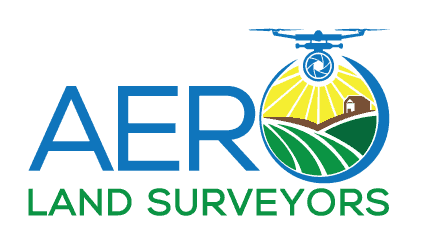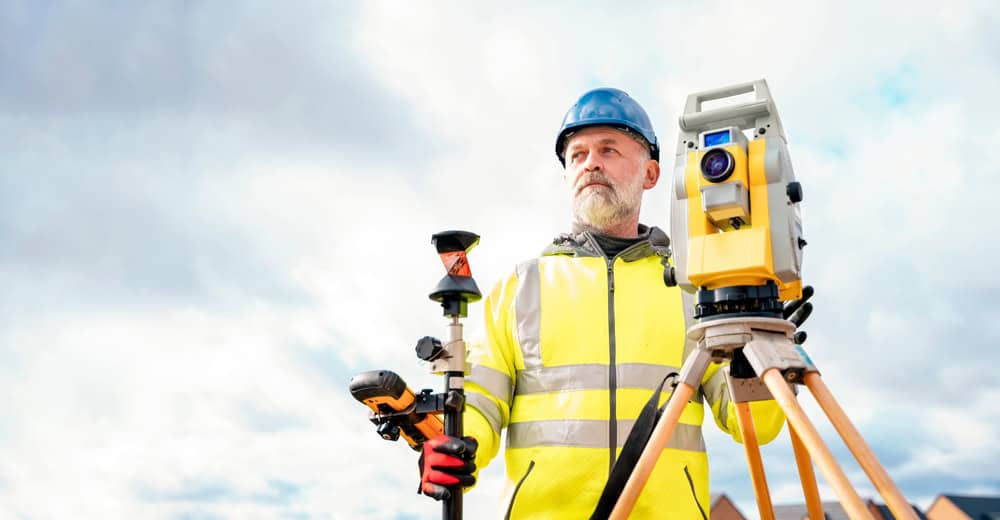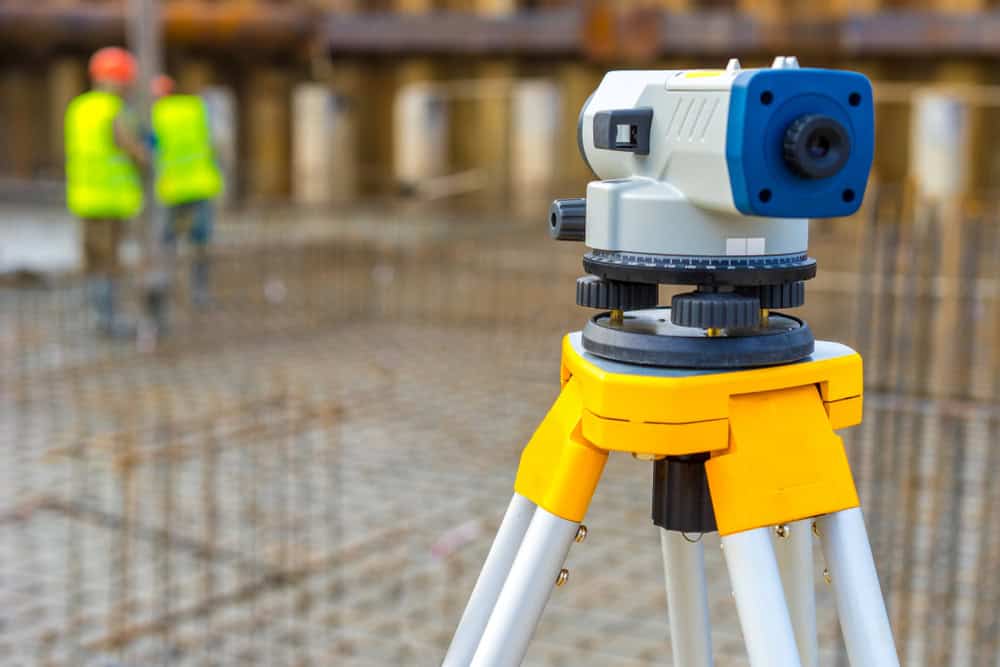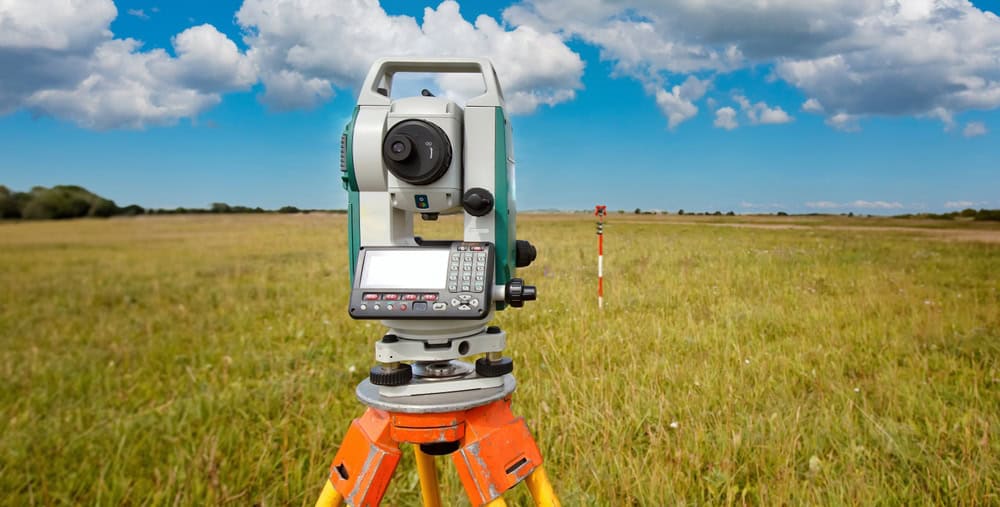Summary:
What Does a Land Survey Actually Reveal About Your Property?
A property survey is a detailed map of the land, identifying boundary lines, improvements and other physical matters that may affect the property. Think of it as an X-ray for your future property – it shows you what’s really there, not just what appears on paper.
The survey outlines property boundaries as well as physical characteristics including improvements, easements, and utilities, allowing you to know exactly where the property bounds are and if anything is encroaching. You’ll get precise measurements, legal descriptions, and a clear picture of any potential issues before they become your responsibility.
How Boundary Surveys Prevent Expensive Neighbor Disputes
Real estate attorneys regularly dispute boundary lines, with property owners spending years assuming boundaries are in different places than their actual legal positioning, posing serious threats for new buyers wanting to install fences or make land changes.
It’s very common for owners to be mistaken about where their property lines are. You might think that fence marks your property line, but what if it’s actually three feet onto your neighbor’s land? Or worse, what if their driveway cuts across property you thought you owned?
A survey establishes exact boundaries, allowing you to know precisely where you can build or modify your land, and provides invaluable evidence if a neighbor ever encroaches on your property. When there’s no dispute about the true boundary line and someone builds a fence that encroaches on your land, you can immediately notify them in writing, and they’re required to remove it – or you can bring an action to eject them from your property.
The stakes are higher than you might think – Florida recognizes adverse possession, meaning if someone occupies land “under color of title” for 7 years, they can actually claim ownership. A proper boundary survey protects you from losing parts of your property through these legal loopholes.
What Encroachments and Easements Mean for Your Property Rights
An encroachment occurs when someone occupies any portion of land above or below the surface beyond what’s described in their deed. This isn’t just about obvious structures – it can include underground utilities, overhanging tree branches, or even parts of driveways.
Surveys reveal both obvious and hidden easements by assessing the property and existing deeds and records. Easements can affect the usability, privacy, and saleability of the property. Easements are established under Florida Statute 704.01 as an implied grant of access to another person or entity, with common examples including utility poles or light fixtures on residential lots.
Here’s what this means in practical terms: if a Florida utility provider has right of access to a utility on your property, they can require you to pay to remove trees or limit additional improvements like extending your home or building a pool or deck. That dream pool you’re planning? It might not be possible if there’s a utility easement running through your backyard.
Hidden easements aren’t easily seen by walking around the land, but they’re legally binding. Surveys show and describe who has right of access on the property, the extent of the easement, its basis, and reference sources including real estate records, municipal ordinances, and deed restrictions. You need this information before you buy, not after you’ve already committed to the purchase.
When Florida Law Requires Land Surveys and Why Lenders Care
While Florida doesn’t legally require property surveys before buying or selling, lenders may want surveys performed as part of their loan process. Most lenders require a clear Florida Form 9 Endorsement to their Loan Policy of Title Insurance, which ensures against violations of restrictions, encroachments into easements, outside boundary lines and damage by mineral development – and this endorsement can only be given with a clear, unaltered survey.
Your lender isn’t being difficult – they’re protecting their investment. Title insurance policies need to identify any encroachments on the property prior to closing, and surveys provide this crucial information.

How Surveys Uncover Code Violations Before They Become Your Problem
One byproduct of surveys is that if anything on the land violates Florida law, you’ll know ahead of time – which is important because in most cases, you become immediately responsible for any violations if you purchase the property.
We confirm whether improvements on the property conform with applicable state or federal laws and other restrictions including county codes and city ordinances. These can include regulation of building heights, parking restrictions, frontage requirements, and federal environmental agency regulations. If we discover violations, we put the buyer on notice by including this information in our notes.
Think about it this way: that beautiful deck extending toward the water might actually violate setback requirements. Setbacks are zoning requirements that prohibit certain property uses, like where fences can be placed or how far from the street you can build. If setback violations exist, they need to be resolved by the seller before closing.
If structures were erected without permits or their size places them outside legal allowances, you don’t want to pay extra for something that puts you in potential legal liability and makes you financially responsible for demolishing or repairing to bring into compliance. A survey catches these issues while you still have negotiating power.
Understanding Survey Costs vs. the Price of Problems Later
Florida boundary surveys typically cost $300 to $800, while staked surveys range from $200 to $2,000 based on complexity and corners. Most land surveys in Florida fall between $400 and $1,200, though the final price depends on several variables.
Compare that modest investment to the potential costs of problems discovered after closing. Open boundary disputes can lead to drops in property values, and it’s highly recommended to resolve disputes as quickly as possible. Legal fees for boundary disputes can easily reach tens of thousands of dollars, not to mention the stress and time involved.
Proper Florida land surveys are professional, independent, legally recognized in legal disputes, and affordable – so there’s truly no reason to skip a survey when buying. The cost to survey property line boundaries is reasonable, and the benefits are numerous with the expenditure representing very good value.
The ideal time to get a property survey is during early stages of the home-buying process before finalizing the deal, but after the appraisal has been completed. By completing the survey early, any concerns or discrepancies can be addressed before closing, potentially saving time and avoiding complications.
Records in local planning offices are often based on decades-old surveys and may not reflect current reality due to weather, erosion, and other factors changing the landscape over time. Your new land survey becomes the new official record, potentially preventing disputes or legal issues from outdated surveys.
Making the Smart Choice: Protecting Your Florida Property Investment
The main reason you should get a property survey in Florida is to avoid problems down the line. From violating state laws to disputes with neighbors and utility companies, you deserve to know the fine details about the property you’re buying. Closing a purchase without a property survey may leave you in shock sooner or later.
A few hundred dollars spent on a survey now can save you thousands in legal fees, construction delays, and property value losses later. You’re making one of the biggest investments of your life – doesn’t it make sense to know exactly what you’re buying?
When you’re ready to protect your property investment with a professional land survey, we at Aero Land Surveyors provide the expertise and technology you need for accurate results you can trust.




